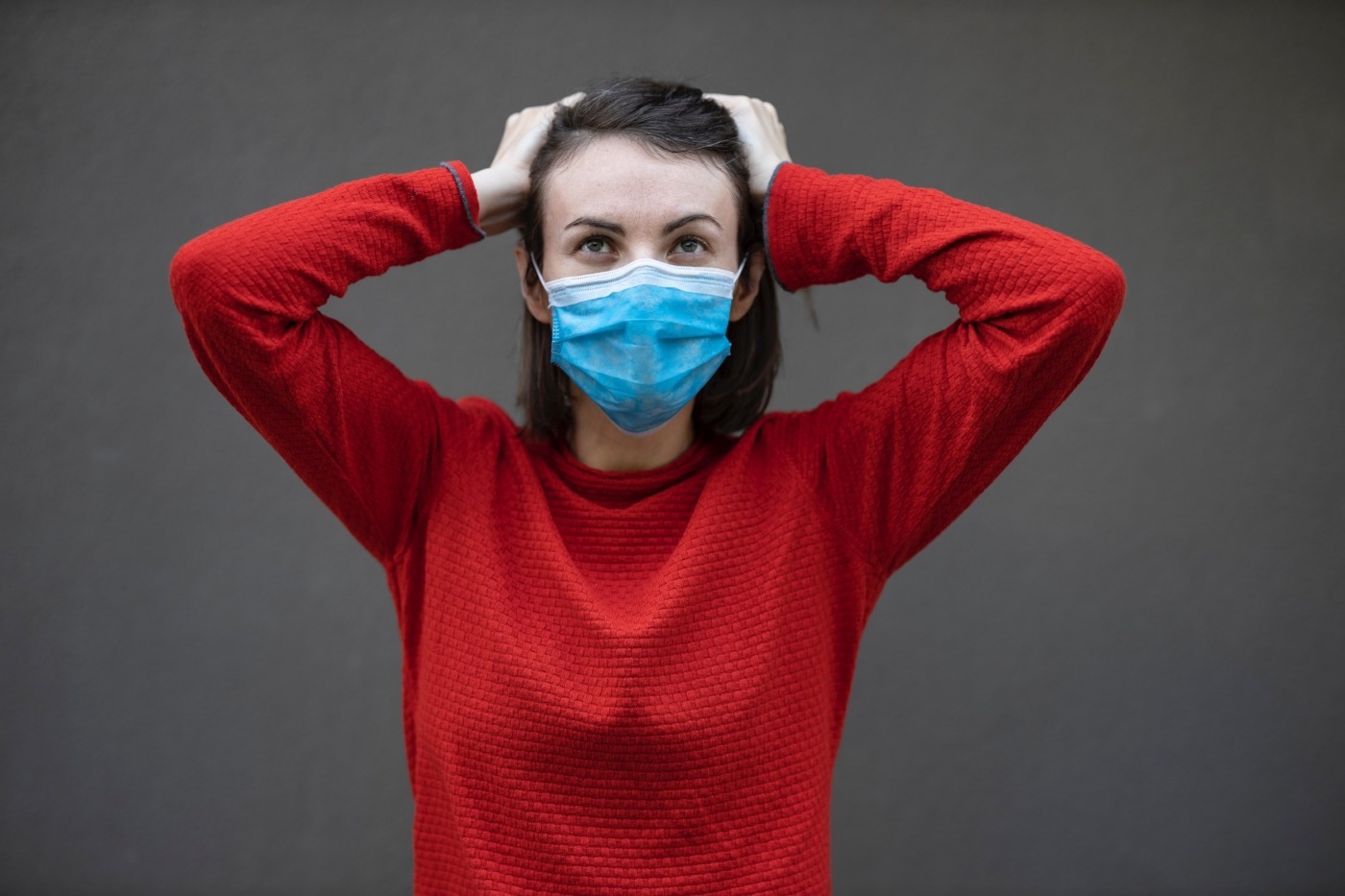Please be more aware of those living with invisible disabilities
Has anyone worked out a polite way to say “I’m legally exempt from wearing a mask” yet? It’s a very small thing, especially compared to the scale of the pandemic, but it’s just one of the problems I’ve been struggling with as a disabled person recently. In theory, looking someone in the eye and telling them you have a disability isn’t a difficult thing to do. But as plenty of people will tell you, this isn’t as easy as it seems in practice.
I was diagnosed with Autism Spectrum Disorder in August 2018. This might seem a little late in life to those of you who aren’t familiar with the ins and outs of disability activism, but women with disabilities often go undiagnosed for most of their lives. One study found that only 20% of autistic girls are diagnosed before the age of 11, compared to 50% of autistic boys. Learning you’re disabled later in life can be tricky to adjust to, and that’s only exemplified by the strange situation we currently find ourselves in.
Autistic people like me don’t have to wear masks according to government guidelines. Plenty of us find it very distressing to wear a mask because of our sensory difficulties, which means we’re often sensitive to experiences like touch, sound, smell, noise, and taste. Having something touching your face at all times can be severely upsetting.
Personally, I’ve found that my ability to wear a mask varies daily. Some days I can wear one with no problems at all or even find it beneficial – I have to put a lot of conscious effort into using “socially acceptable” facial expressions and wearing a mask means I can take a break for once. Other days, it is completely unbearable, and all I want is to rip the stupid thing off my face so I can breathe properly.
We’ve had our daily routines taken away from us and the constantly changing rules are incredibly distressing
Most of the time, disabilities aren’t obvious to other people. If I looked autistic, then I wouldn’t have flown under the radar for 18 years and spent most of my life thinking that I was just stranger than my peers. So, if somebody sees me not wearing a mask, they’re inclined to think that I’m doing something wrong. I don’t blame them, but I also don’t know how to respond when I’m told I must wear a mask in, for example, the Learning Grid. I’m not ashamed to tell people I’m autistic but after years of living undiagnosed, I’m scared they won’t believe me. Or worse.
A survey in 2017 found that 73% of disabled people had experienced a hate crime in the last year, with conditions like autism having the highest rate. Ask any disabled person and they’ll probably tell you that they’ve been harassed for being different at least once in their life. Recently, a friend of mine was shouted at on the London tube for not wearing a mask, despite being exempt from the rules. Every time I take mine off, I get scared the same thing will happen to me too.
There’s no doubt in my mind that it’s an exceptionally tricky time to be disabled. Putting masks aside for a minute, we’ve had our daily routines taken away from us and the constantly changing rules are incredibly distressing. It’s also exhausting that I, as a disabled person, am not really being listened to by the university or the students here. I’ve written before about how grateful I am about teaching moving online, since I find lecture halls overstimulating, only to find out that the same people who were in lectures with me last year are campaigning against it.
Living through the coronavirus pandemic has highlighted to me just how little understanding there is surrounding disabilities
Not to mention that Warwick Enable, which supposedly speaks for all disabled students on campus, have also said that they want in-person teaching. While it’s true that some disabled people will be affected by online teaching, the blanket statement seems harmful to people like me who would benefit a great deal from it. And I’m irritated that they, like the government and many charity groups, claim they’re helping me while actively going against what I’ve asked for.
Living through the coronavirus pandemic has highlighted to me just how little understanding there is surrounding disabilities. Trying to explain to sceptical people why I can’t wear a mask because I don’t “look” disabled is just a symptom of this larger problem. It just makes me feel like a fraud or, worse, one of those anti-mask protesters. And while I am happy that the rules surrounding masks are being enforced in most places, it feels unfair that I am too scared to disclose my disability for fear of harassment, while “covidiots” proudly flaunt their non-compliance.
Nevertheless, there is a pleasant irony in my autism making me too socially awkward to explain that I don’t have to wear a mask because, get this, I’m autistic.

Comments